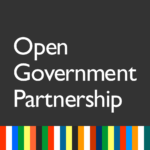ABOUT OPEN GOVERNMENT
Get to know the three hallmarks of an Open Government
MALTA'S PARTICIPATION
Malta's three NAP submissions since 2012
CO-CREATION PROCESS
Transparency, Participation, Accountability
PUBLIC CONSULTATION
Comments, Opinions, Suggestions
About Open Government
Open government policies represent one of the most important drivers to modernize public administrations and improve the quality of services delivered to citizens and businesses. Implementing the principles of open government allows for a more effective response to the growing need for transparency of administrative performance and for citizen and civil society participation; it allows to more effectively combat corruption and to increase trust in institutions.
The three key hallmarks of an open government are: transparency, accountability and participation.
Open Government Partnership (OGP), the introduction of e-government in order to provide better public service to the public, providing a legal framework for access of information, the launch of an open data webpage and an online public consultation platform where stakeholders and the public can participate.
- Transparency helps the public to understand the workings of their government. It is an essential precondition for open and inclusive policy-making, and also helps build public trust in government.
- Accountability implies a willingness to be transparent, allowing the public to observe and evaluate government’s performance.
- Participation gives the right to citizens to be involved in the development, implementation and evaluation of public policies.
OPEN GOVERNMENT PARTNERSHIP
Open Government Partnership (OGP) is an international initiative supporting collaboration between governments and civil society organizations with specific objectives and on concrete projects to render governments more open. OGP brings together government reformers and civil society leaders to create action plans that make participating governments more transparent, inclusive, responsive and accountable. The aim of the OGP is to secure concrete commitments from governments to their citizenry to promote transparency, empower citizens, fight corruption, and harness new technologies to strengthen governance.
Transparency, participation, integrity and digitization are the principles of the Open Government Declaration 2011 whereby the member countries commit themselves to the initiatives in the context of open government. The key commitments include:
- development of a two-year National Action Plan (NAP), closely involving civil society, that includes commitments and projects on OGP topics, using innovation and digital transformation;
- elaboration of self-assessments on the progress made under the National Action Plan, evaluated by the
Independent Reporting Mechanism (IRM); - dissemination of open government in other countries through the exchange of best practices, technical assistance, technologies and resources;
- support to the OGP Local programme;




